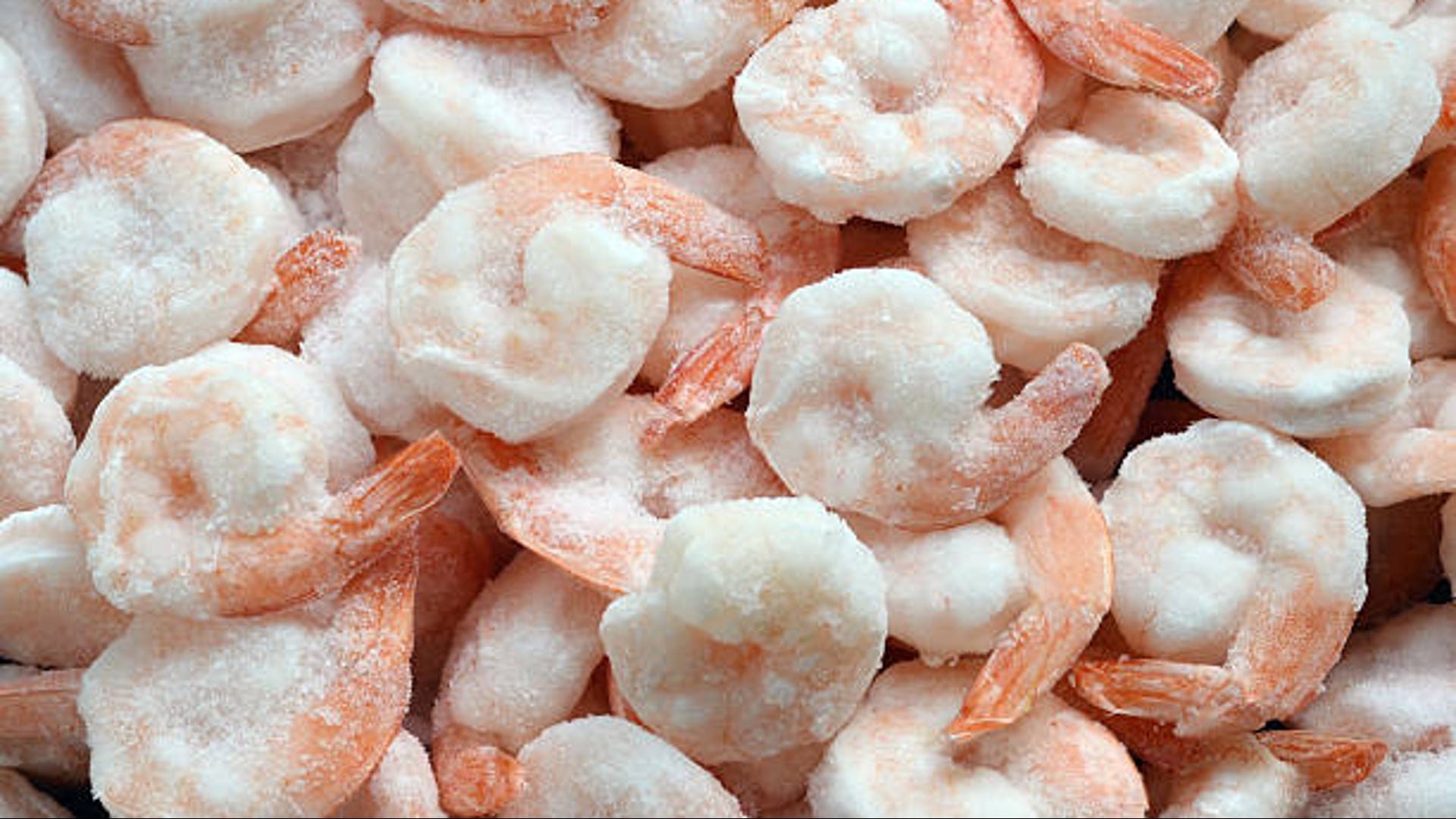
FDA recalls potentially radioactively contaminated shrimp
The Food and Drug Administration (FDA) recalls frozen shrimp sold at Walmart due to potential radioactive contamination.
No Brands – News Value
According to the Food and Drug Administration, more shrimp are being recalled due to the potential for radioactive contamination.
On Thursday, August 21, Southwind Foods LLC in Carson, California voluntarily recalls limited amounts of frozen shrimp due to the possibility of contamination of cesium-137, CS-137, the FDA said in its release.
The radioactive material is also involved in a recall of the white vannami shrimp raised on a farm that peels off the skins of the great value brand of frozen raw ez, which was announced earlier this week.
No diseases have been reported in connection with recalled shrimp.
“The FDA is actively investigating reports of cesium 137 (CS-137) contamination in shipping containers and reports of frozen shrimp products processed by Pt. BahariMakmur Sejati (business as BMS Foods) in Indonesia,” the FDA said.
Where was the recalled shrimp sold?
According to the FDA, shrimp that was voluntarily recalled by Southwind Foods were sold in the following states:
- Alabama
- Arizona
- California
- Massachusetts
- Minnesota
- Pennsylvania
- Yuta
- Virginia
- Washington
What was recalled?
According to the FDA, the following items have been recalled due to exposure:
- Frozen Raw Shrimp 31/40 Sandwich Bar 2 LB Bag
- Item number-08890
- UPC-011110641182
- Lot number-087305
- Frozen Cooked Shrimp 31/40 Best yet 1 lb Bag
- Item number-06350
- UPC-042187002736
- Lot number-095944
- Frozen Cooked Shrimp 31/40 Best yet 1 lb Bag
- Item number-06350
- UPC-042187002736
- Lot number-111154
- Frozen Cooked Shrimp 31/50 Best yet 1 lb Bag
- Item number-06062
- UPC-042187002743
- Lot number-095946
- Frozen Large Cooked Shrimp 31/40 Arctic Coast 1 lb Bag
- Item number-08224
- UPC-041130812392
- Lot number-109562
- Frozen Small Cooked Shrimp 61/70 Arctic Coast 1 lb Bag
- Item number-08127
- UPC-041130810497
- Lot number-109540
- Frozen Small Cooked Shrimp 91/120 White Arctic Coast 12oz Bag
- Item number-08128
- UPC-041130810411
- Lot number-109541
- Frozen Cooked Salad Shrimp 150-200 Arctic Coast 6oz Bag
- Item number-08129
- UPC-041130811685
- Lot number-109542
- Frozen Raw Shrimp 16/20 Great American 2 lb bag
- Item number-06021
- UPC-829944010612
- Lot number-125143
- Frozen Raw Shrimp 16/20 First Street 2 LB Bag
- Item number-06171
- UPC-041512179471
- Lot number-130632
- Frozen Raw Shrimp 71/90 Great American 2 lb Bag
- Item number-06102
- UPC-829944010698
- Lot number-128267
- Frozen Cooked Shrimp Meat Great American 1 lb Bag
- Item number-08523
- UPC-829944092540
- Lot number-134010
- Frozen Cooked Shrimp 41/60 Great American 2 lb Bag
- Item number-06812
- UPC-829944012173
- Lot number-128275
What should I do if I remember shrimp?
If you have a recalled shrimp package at your home, don’t eat it or serve it, the FDA notification says. Instead, throw it away or return it to the place you purchased for a full refund.
Anyone with questions can call Southwind Food from 8am to 4pm Monday through Friday at 1-323-262-8222.
Anyone who fears they are exposed to rising cesium levels should contact their healthcare provider. Consumers can visit the FDA’s industry and consumer support portal to file a complaint or report adverse reactions.
pt. Maritime Makmur Sejati has been placed under import warning
pt. Bahari Makmur Sejati also suffers from import warnings for chemical pollution. This prevents company food from entering the US until it resolves conditions that could cause exposure.
The FDA is working with Indonesian seafood regulators to investigate the causes of the contamination.
What is Cesium 137 (CS-137)? Why is it regulated?
CS-137 is a radioactive same-sex material of cesium. In other words, it is a chemical element that emits radiation when it fails. According to the FDA, it is artificially produced by nuclear fission. In the United States, it is used in medical devices and measuring gauges, including industrial devices that measure material thickness.
“This is also one of the by-products of the nuclear fission process in nuclear reactor and nuclear weapon testing,” the EPA said.
According to the FDA, it is widely used around the world, so trace amounts can be found in the environment, such as soil, food and air. The FDA and agencies including the US Customs and Border Protection test, monitor and regulate the presence of substances due to risks associated with long-term exposure.
Low levels of radiation exposure over time can lead to serious health complications, the FDA said. Exposure to CS-137 alone can cause burns, acute radiation disease, cancer and death. As a result, agencies limit potential exposures and minimize the possibility of these long-term effects.
Julia is a trend reporter for USA Today. Connect with her LinkedIn,x, Instagram and TiktokPlease email: @juliamariegz or jgomez @gannett.com

